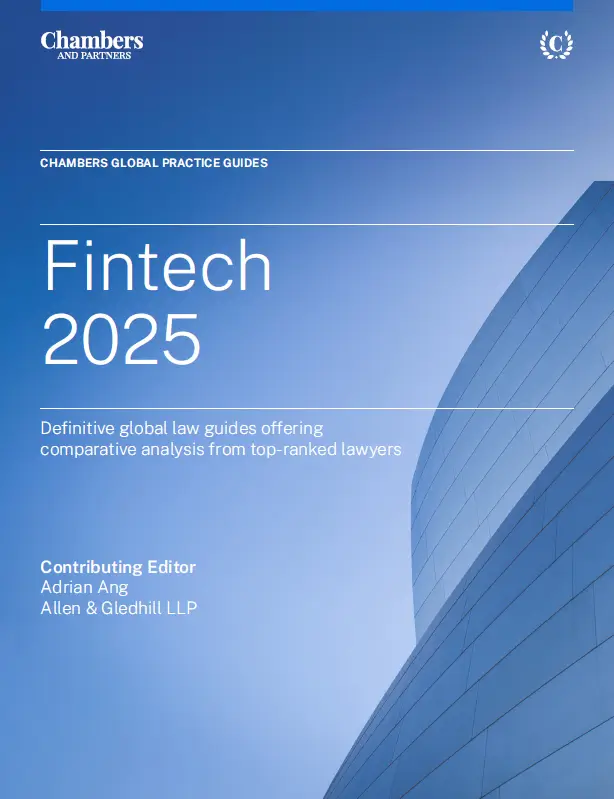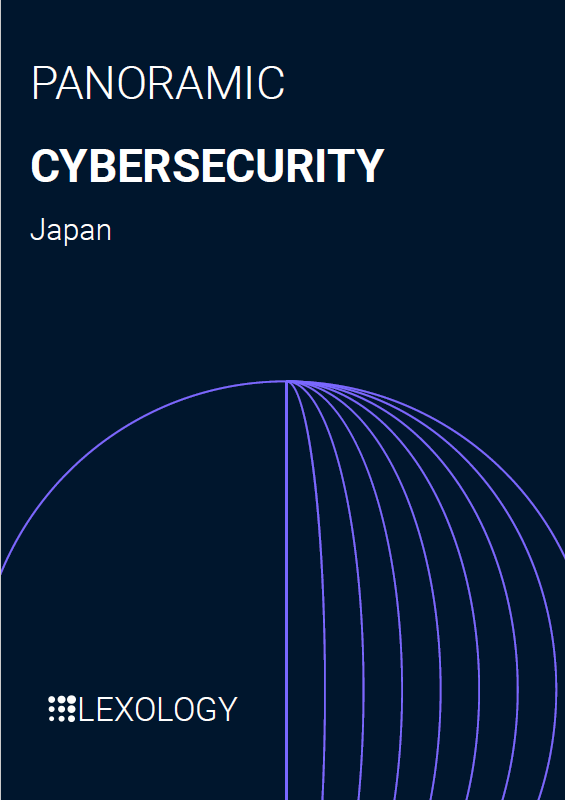
NO&T Asia Legal Review
Based on information available in the public domain, in 2020 the revenue of gaming industry in Indonesia reached US$ 1,740,000,000 and in 2025 the revenue is predicted to increase up to US$ 2,500,000,000. However, 99.51% of such revenue is dominated by foreign entities and only about 0.49% of the total revenue is enjoyed by Indonesian entities. Aware of these facts, Indonesian government established a national development roadmap for gaming industry in the form of Presidential Regulation No. 19 of 2024 on the Accelerated Development of the National Gaming Industry (“Presidential Regulation”) which was signed into effect on 12 February 2024. The regulation reflects the government’s recognition of the gaming sector’s strategic importance in contributing to the nation’s economy, culture, and society. It seeks to foster collaboration among stakeholders, address industry challenges, increase the market share of domestic game developers, reduce reliance on foreign revenue sources, and promote growth and innovation within the national gaming industry.
The Presidential Regulation introduces the National Games Industry Development Acceleration Program designed to address key objectives, such as creating a globally competitive national game development sector. To achieve these goals, a National Games Industry Development Acceleration Team will be formed, consisting of representatives from various ministries or institutions and led by the Coordinating Minister for Maritime and Investment Affairs. The team also involves the Ministry of Manpower, Minister of Tourism and Creative Economy, Ministry of Finance, Ministry of Trade, Ministry of Industry, Minister of Communication and Information Technology (“MOCIT”), and Head of the National Research and Innovation Agency. Generally, the team is tasked with developing and implementing policies and programs to promote the growth of the nation’s gaming industry and to encourage investment by domestic and foreign investors.
Below are the main initiatives of the National Games Industry Development Acceleration Program:
Elucidation of the Presidential Regulation defines game publisher as the promoter of game and in some cases may also be the game developer (for example, Games Studio Inc., DENA Co., LTD, ZigzaGame Co. Ltd, Mihoyo, etc.). The President Regulation mandates MOCIT to create a new business classification code (KBLI or Klasifikasi Baku Lapangan Usaha Indonesia) for game publishers to allow foreign game publishers to establish an Indonesian legal entity or a joint venture with a domestic legal entity in the form of a limited liability company. Targeted in 2024, there will be a more-detailed regulation for game publishers operating in Indonesia to either establish Indonesian legal entities or collaborate with Indonesian entities. Those without legal entity status may face blocking measures by MOCIT.
Elucidation of the Presidential Regulation defines game publisher as the promoter of game and in some cases may also be the game developer (for example, Games Studio Inc., DENA Co., LTD, ZigzaGame Co. Ltd, Mihoyo, etc.). The President Regulation mandates MOCIT to create a new business classification code (KBLI or Klasifikasi Baku Lapangan Usaha Indonesia) for game publishers to allow foreign game publishers to establish an Indonesian legal entity or a joint venture with a domestic legal entity in the form of a limited liability company. Targeted in 2024, there will be a more-detailed regulation for game publishers operating in Indonesia to either establish Indonesian legal entities or collaborate with Indonesian entities. Those without legal entity status may face blocking measures by MOCIT.
The Ministry of Manpower is tasked to develop and implement policies that will simplify the permit requirements for expatriates who are highly competent in the field of game development to work in Indonesia.
The Ministry of Manpower is tasked to develop and implement policies that will simplify the permit requirements for expatriates who are highly competent in the field of game development to work in Indonesia.
The Ministry of Finance is assigned to implement a policy aimed at providing tax incentives to local game developers and publishers. This involves the gaming industry being included in Special Economic Zones and revising existing laws on corporate income tax facilities. While, Minister of Tourism and Creative Economy is tasked with making a funding scheme from investors in the form of matching fund and venture capital to fund national game developers and publishers. In addition to that, the Ministry is also tasked to develop a national gaming industry financing scheme for banks to allow gaming companies to obtain financing using their intellectual property assets as collateral. This includes the creation of intellectual property valuation guidelines.
The Ministry of Finance is assigned to implement a policy aimed at providing tax incentives to local game developers and publishers. This involves the gaming industry being included in Special Economic Zones and revising existing laws on corporate income tax facilities. While, Minister of Tourism and Creative Economy is tasked with making a funding scheme from investors in the form of matching fund and venture capital to fund national game developers and publishers. In addition to that, the Ministry is also tasked to develop a national gaming industry financing scheme for banks to allow gaming companies to obtain financing using their intellectual property assets as collateral. This includes the creation of intellectual property valuation guidelines.
The government aims to increase promotion and opening of access to the national gaming market, create an adequate and competitive technology infrastructure to support game developers. Under one such measure the Ministry of Trade is tasked to supervise the marketing synergy with existing e-commerce players in Indonesia by providing slots for game promotion and its merchandise. Another program is to synergize the inclusive payment gateway system in the distribution platform to give access to third-party payments from Indonesia (such as OVO, DANA, GoPay, LinkAja, etc).
The government aims to increase promotion and opening of access to the national gaming market, create an adequate and competitive technology infrastructure to support game developers. Under one such measure the Ministry of Trade is tasked to supervise the marketing synergy with existing e-commerce players in Indonesia by providing slots for game promotion and its merchandise. Another program is to synergize the inclusive payment gateway system in the distribution platform to give access to third-party payments from Indonesia (such as OVO, DANA, GoPay, LinkAja, etc).
To promote the growth of the hardware industry for national games, the Minister of Industry is expected to draft legislation incorporating software aspects (games) into the calculation of local hardware components. This measure could see national games preloaded onto hardware as a means of expanding their market. The Ministry is also tasked with issuing legislation regarding local content requirements for game industry products to be circulated in Indonesia.
To promote the growth of the hardware industry for national games, the Minister of Industry is expected to draft legislation incorporating software aspects (games) into the calculation of local hardware components. This measure could see national games preloaded onto hardware as a means of expanding their market. The Ministry is also tasked with issuing legislation regarding local content requirements for game industry products to be circulated in Indonesia.
In tandem with the Presidential Regulation, MOCIT has enacted the first policy regarding game industry which is effective from 24 January 2024, MOCIT Regulation No. 2 of 2024 on Game Classification (“MOCIT Regulation 2/2024”) which renews the age classification for games and provides new requirements for game publishers. Regulation 2/2024 replaces MOCIT Regulation No. 11 of 2016 (as defined below) which is deemed no longer relevant to current market. MOCIT Regulation 2/2024 asserts the previous MOCIT Regulation No. 5 of 2020 on Private Electronic System Operator (“Regulation 5/2020”) which stipulates that game publishers, both local and foreign, must register themselves as a private electronic system operator (Penyelenggara Sistem Elektronik Lingkup Privat or PSE Lingkup Privat) through the Online Single Submission (OSS) system. However, different from Regulation 5/2020 under which foreign entities domiciled overseas can register for the private electronic system operator certificate and distribute the games in Indonesia, with the enactment of MOCIT Regulation 2/2024, all foreign game publishers must have Indonesian presence either by way of forming a subsidiary as foreign direct investment company or entering into joint venture arrangement with domestic game publishers.
After the registration, a game publisher must independently classify its games before it can advertise and promote the games in Indonesia. This self-assessment can be done either through MOCIT’s official website or any electronic systems connected to MOCIT’s website (e.g., igrs.id).
After the self-assessment, MOCIT will conduct a suitability assessment on the game’s classification. Then the game publisher can advertise and promote their game in Indonesia. The game publisher must ensure that:
Regulation 2/2024 also strictly prohibits three types of contents which make the game unclassifiable, as follows:
Regulation 2/2024 imposes administrative sanction in the form of written warning, temporary suspension, or termination of access for Indonesian users to the game through MOCIT to game publishers that do not classify their games, re-asses their content’s classification, fail to include the result of the MOCIT’s classification in the game’s description, packaging, and/or advertising. MOCIT will also block Indonesian users access to the content of unregistered game publishers.
Going forward, foreign game publishers that are active in the Indonesian market must have presence in Indonesia, whether by establishing a limited liability company as a foreign direct investment company or forming a joint venture with Indonesian legal entity and become a taxable entity under Indonesian tax regulations. As the Indonesian government is motivated to increase the domestic presence in gaming industry, there is a possibility that the government will limit the percentage of foreign shareholding in the foreign direct investment companies of gaming industry. Based on our communication with MOCIT, the new KBLI for the game industry will be effective in 2025. Until then, the existing foreign game publishers may still run their business as usual. However, we can expect mandatory changes or renewals to the currently registered private electronic system operator certificate held by foreign game publishers in Indonesia’s game market.
This newsletter is given as general information for reference purposes only and therefore does not constitute our firm’s legal advice. Any opinion stated in this newsletter is a personal view of the author(s) and not our firm’s official view. For any specific matter or legal issue, please do not rely on this newsletter but make sure to consult a legal adviser. We would be delighted to answer your questions, if any.


Chattong Sunthorn-opas, Thunsinee Sungmongkol (Co-author)


Ario Putra Pamungkas


Long Nguyen


Rashmi Grover


Chattong Sunthorn-opas, Thunsinee Sungmongkol (Co-author)


Long Nguyen


Rashmi Grover


Anastasia Jessica Maureen


(June 2025)
Keiji Tonomura, Yukiko Konno, Minh Thi Cao Koike, Yoshiteru Matsuzaki (Co-author), Masahiro Kondo (Contributor)


(April 2025)
Keiji Tonomura, Akira Komatsu (Co-author)


(April 2025)
Keiji Tonomura, Shu Sasaki, Kazuyuki Ohno, Otoki Shimizu (Co-author)


Poonyisa Sornchangwat, Kwanchanok Jantakram (Co-author)


(April 2025)
Keiji Tonomura, Akira Komatsu (Co-author)


(October 2024)
Keiji Tonomura, Minh Thi Cao Koike (Co-author)


(July 2024)
Yasushi Kudo, Tsubasa Watanabe, Hayato Maruta (Co-author)


Anastasia Jessica Maureen


Patricia O. Ko


Ngoc Hoang


Yuan Yao Lee


Chattong Sunthorn-opas, Thunsinee Sungmongkol (Co-author)


Patricia O. Ko


Ngoc Hoang


Yuan Yao Lee


Chattong Sunthorn-opas, Thunsinee Sungmongkol (Co-author)


Ario Putra Pamungkas


Yoichi Maekawa


Anastasia Jessica Maureen


Luciana Fransiska